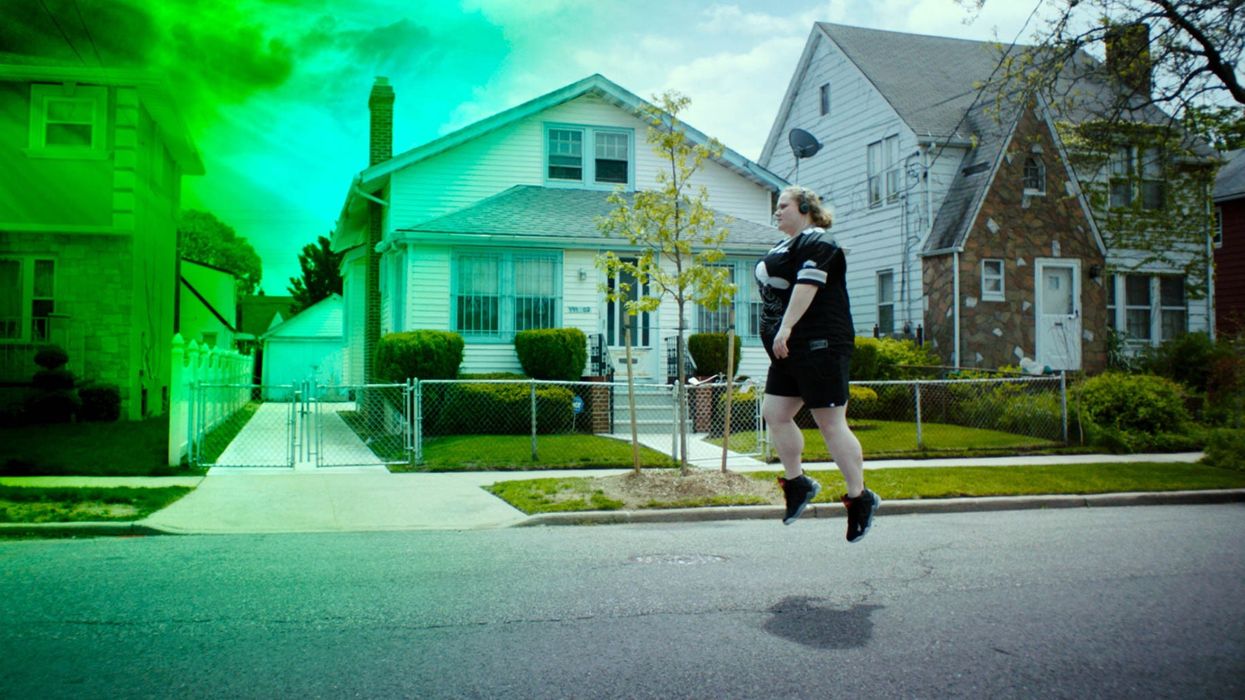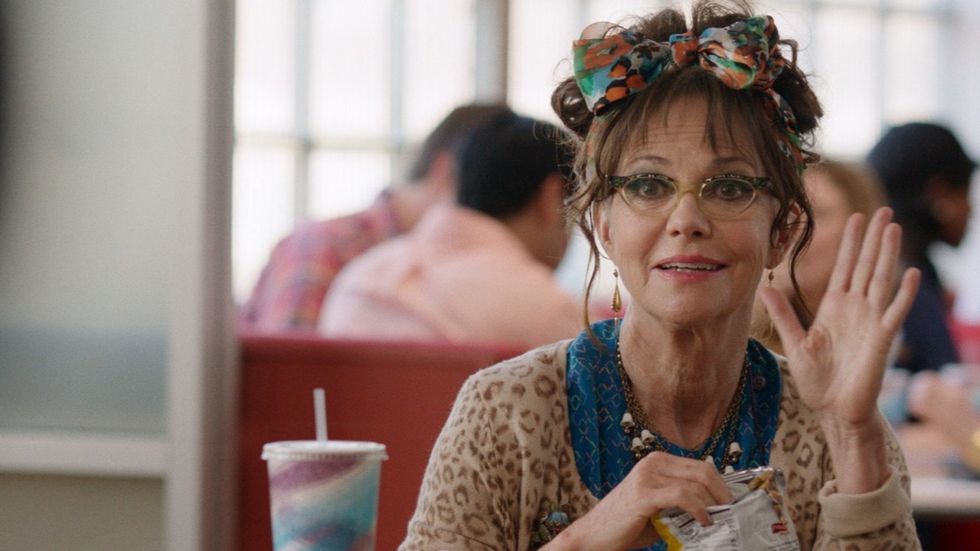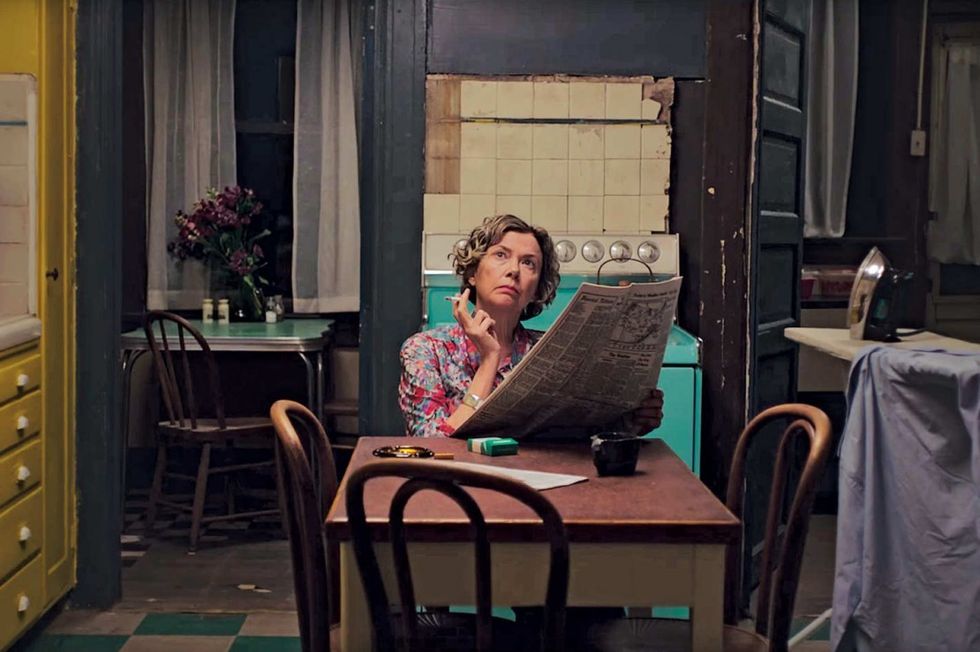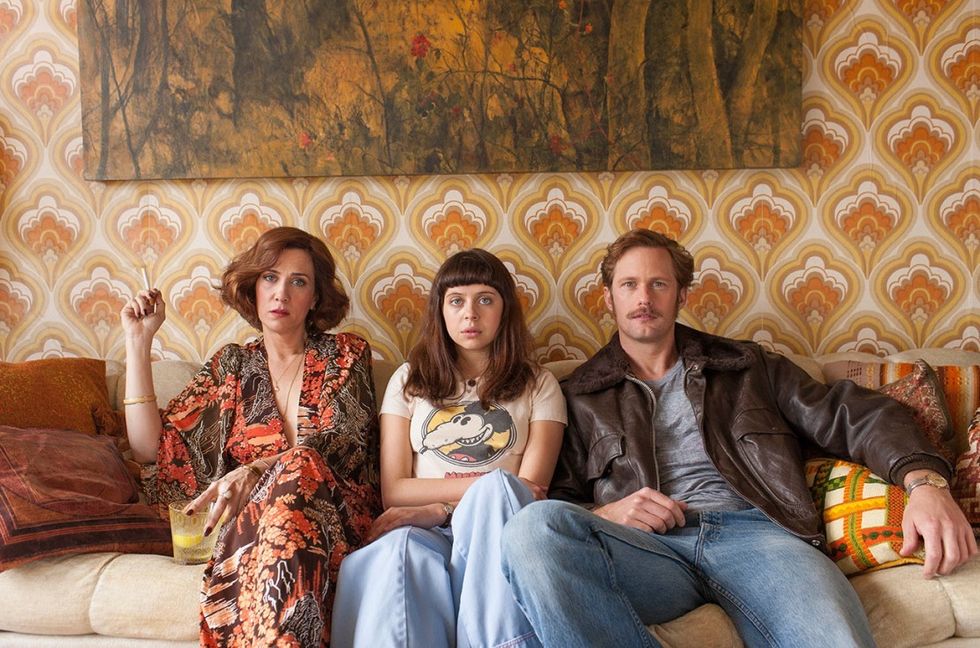Launch Your Career: 10 Lessons on How to Network in the Film & Television Industry
Really, nobody likes it, but networking is the only way to get anywhere in this industry.

It’s funny how in nearly every creative industry, success comes to the business-minded. For every cocktail hour, you can count the shy, awkward “artists” standing in the corner, fiddling with their drinks. For every single schmooze-inclined producer-type, there are ten writers who would rather be at home. The unfortunate fact is, those who can gather up the courage to shake hands and make a stilted introduction are the ones getting ahead. So, what’s left for the rest of us? There has to be another way.
IFP kicked off their 2017 Screen Forward Conference by attempting to answer that very question. How do you get your foot in the door (and not be weird about it)? The panel “Let’s Get Coffee” included Alex Scharfman (Co-founder, Secret Engine), Vinay Singh (Partner, Archer Gray), Lauren Kushner (Senior Manager, Artist Development, SFFILM), and Jordana Mollick (Producer, Hello My Name is Doris), with Indiewire writer, Chris O’Falt as moderator.
Together, these industry veterans shared their input on the best ways to make a first impression, ace a pitch meeting, and build your own network. Here are 10 lessons we learned from their advice.

1. How to nail the 10-minute pitch
Since one of the biggest components of IFP Week is daily rounds of pitch meetings that can only be likened to speed dating, the conversation started there.
Mollick offered her take on the perfect speed-pitch. “From a personal standpoint, you have ten minutes for these meetings and the people that you’re meeting with have spent the last one hundred minutes with other people.” It’s honestly best practice to assume anyone you meet, in any context, has had this kind of hectic day. Mollick continued, “The key is striking a balance of talking about yourself and also talking about the project.” Ultimately, if they like your project, you’ll send them a more detailed run-down later. “So, some of it is the story of where you’re from or what got you here, or your vision as a filmmaker in general, and the rest is really using your time to connect.”
In her experience, “you remember connecting a little bit more than the actual specificities of the project because when you’re hearing twenty pitches a day, things do start to blur together.”
2. Don’t waste your time on false connections
Kushner added that not everyone is worth your ten minutes, and that it’s nothing personal. “I think that's really important to keep in mind that if there are people that you're not connecting with, as much as that relationship is coming from you, it’s also coming from the other side. And it's totally valid if you're meeting with somebody and feel like they don’t see it how you do, that you not follow through with that relationship.” So, don’t feel bad for bailing on someone with different sensibilities. Diversity in taste is what makes the art world thrive!
"I am a big proponent of people not just finding a partnership, but the right partnership."
Scharfman shared two stories about not gelling during a pitch. “I remember when I was on the giving side of pitches once here [at IFP], very early in a meeting I figured out, oh yeah this movie isn't for you, like we can talk for two more minutes but then maybe we just want to go send some emails or go do other stuff.” Similarly, he added, “when I was on the receiving side, someone came up was like, ‘this project probably isn't for you.’” That person then proceeded to pitch a different project that they thought would interest Scharfman, “and it became a totally different, more fluid conversation.”
“I think everyone knows what it feels like when you’re really in sync with someone,” Kushner noted. “So, I think it’s really about trying to capitalize on those relationships when it feels right, instead of trying to put a round peg in a square hole. I am a big proponent of people not just finding a partnership, but the right partnership.”
3. Be able to tell your story in two minutes
Yes, even in a thirty-minute meeting, you need to be able to tell your story succinctly. “You should get really good at being able to pitch your project and your own story in two minutes and lead with that,” said Singh. “Even if it’s a half-hour meeting, don’t take twenty minutes to do the synopsis of your film. If the meeting organically goes there, great.” He added, “If somebody is very good at succinctly pitching their project, and hooking me in two minutes, then the conversation goes to interesting places because then there's enough time for it to go wherever it should go, based on who’s on the other side of the table.”
Take note during these meetings, and whenever you’re telling your story, of when people are engaging the most, noted Scharfman. “When are people leaning in?”

4. Go to the cocktail hour
O’Falt posed the question, is going to every single event really worth it? Is networking really all it’s cracked up to be?
“I think that it's different for every stage of your career,” answered Mollick. “I always say, this is the year that I'm going to stop going to drinks every single night because I’m getting tired.” It’s exhausting, but so, so necessary. “Networking is the extremely important. My career was built entirely on networking.” Unless you have inherent family connections, you have to build your own, she said. “I moved to L.A. in that horrible 2008 year after the recession, and all I had was networking. Every person that I met, in the most organic way that I could, I had introduce me to two more people, and that’s how I made my friends, it’s how I built my business.”
She’s not talking about the weird “hi, this is information about me” kind of networking, but the kind where you make a real human connection. And then, Mollick said, it’s on you to follow up. “Just shoot that person a non-obnoxious email and say, ‘It was so great meeting you, you mentioned that you have someone at UTA that you really thought that I should meet, I’d love that intro when you get a chance.’”
Describing her twenties, Mollick said, “I was always trying to get into some kind of cocktail-y network-y thing and having drinks meetings, and not knowing if they were business, or friendship, or a date, but you just kind of have to figure it out.” (The date part may be less of a problem for the men out there.)
"The adage of who you know in this industry is unfortunately true and it’s not changing."
5. Recognize opportunities to network wherever you are
But the cocktaily things aren’t the only way to network, said Singh. “This is networking,” he said referencing the panel. “After this, you can maybe say hi to the person sitting next to you. Day drinking is networking [if you’re with other people]. Being a PA on a set, and getting to know everyone on that set, and staying in touch with them, is networking.”
Basically, figure out what works for you, because standing awkwardly in a corner isn’t productive for anyone. “If networking over drinking is not your thing, don’t do it, don’t stress about not being at every cocktail thing that's going on every night this week.”
Unfortunately, he added, “The adage of who you know in this industry is unfortunately true and it’s not changing.”
6. Foster your own community
In that vein, Kushner encouraged “assessing the value of your limited time.” Don’t go to events that don’t benefit you. Instead, she said, grow the communities you have and invest your energy into your best connections.
She recalled a time when she was attending a weekly meeting where everyone was in agencies or different fiction genres. Kushner is in doc. “At some point, there was a pivot where some of my friends who were working in documentary started doing these small dinners and kept them at around ten people so you could really get to know everyone, and not just talk about film, but also talk about our lives and just talk about other things going on.”

For her, that changed everything. “That evolved and continued to grow, and it was also a mixture of filmmakers and industry, which was really helpful for all of us to learn from the others and breakdown some of those inadvertent barriers that can come up. So, I think kind of building your own community, whether that's your people in your neighborhood, or if you can build your own networking events, are so crucial. We’ve been really helpful in helping each other get jobs and just looking out for each other with recommendations.”
If you’re the entrepreneurial type, maybe this means starting your own weekly or monthly dinner. “If you just graduated from film school, you have a community. Put together a writers group or put together a weekly dinner,” agreed Mollick.
“At this point, I probably have a different women’s event every single night of the week. And it’s like, look at what happened, Patty Jenkins broke the glass ceiling! These things happen and you eventually feel like you’re a part of it. Start things because then other people want to invite you to their things. So that’s another good way of less awkwardly networking, if you start with the community that you have and grow it.”
7. Take the opportunity because it may never happen again
The reason the film industry is so based on who you know, O’Falt pointed out, is because there are just too many of us. Nobody has the time to make it fair. “So many people are trying to get their foot in the door, so many people want so many of the same things, and when that opportunity comes, it’s usually gone in like a day or two.”
In an imagined situation, O’Falt said, “That assistant job at Endeavor or WME, for example, everyone wants that job and suddenly it needs to be filled in 12 minutes.” So, who gets the call? “It’s not like they’re taking in the resumes of everybody in LA that wants it, that's where the community comes in, that's where the Bat Signal comes out. At dinner last week, you might have met someone’s younger sister who's just come to town and wants it, that's how she’s going to find out about it.”
"I got a call from Endeavor to come in for an interview to be their receptionist, and I was like, 'Oh, uh, maybe,' and they were like, 'This is never going to happen again so take the interview or not.'"
Turns out, Mollick had that exact experience. Her break into the film industry came in the form of someone from camp who had worked at CAA six years prior. Mollick had reached out to this woman and asked for help. The friend, in turn, called someone she knew who worked at Endeavor. Mollick didn’t hear anything for months and then one day the phone rang.
“I got a call from Endeavor to come in for an interview to be their receptionist, and I was like, ‘Oh, uh, maybe,’ and they were like, ‘This is never going to happen again so take the interview or not.’” Really, the person on the phone really said that.
“I’m the world’s worst receptionist,” said Mollick. But she took the job and made the best of it. “You just get the opportunity, you take it, you figure it out, and you make yourself valuable.”
8. Figure out your sustaining hustle
What’s not often discussed is the fact that the time it takes to break in is long, and it’s never funded. Mollick’s receptionist salary? $20,000 a year.
“Success and financial stability don’t come over night in this industry,” said Singh. “We don’t talk enough about how it’s increasingly hard if you are not from a stable upper middle-class family to make it in this industry, because there’s no safety net.”
"What you don’t want to do is have to bail on your dreams because you run out of money."
“Hold down two jobs,” he said. Do anything you can to fund your unstable entrée into this industry. “What you don’t want to do is have to bail on your dreams because you run out of money, and that’s a very real consideration. So, while you’re also hustling and doing that networking, doing all the things that make it so hard to get into this industry, you also have to be giving yourself enough runway to make sure you get there.”
“Thinking back to when I started as an unpaid intern,” he continued, “almost all those other interns have now since bailed on the industry because they just couldn’t not make money for as long as they needed to, to get into this industry. And that’s a crappy thing and I hope we change it, I hope we get rid of unpaid internships and not just because people are scared of lawsuits. But that’s the nature of the industry, we have this problem and we have to find a way to address it.”

9. Decide if your side-hustle is in or out of the industry
O’Falt brought up an often-debated issue. Should your money-making job be film-related or not? There’s a very real threat of getting lost on the wrong path if you’re not careful, but at the same time, any industry job is better than none, right?
Singh says this is an area where taking a five-year perspective is crucial. “Let’s just pick something, a studio executive or an agent,” he reasoned, “I would not spend all your time on set being a sound recordist because it’s a harder trajectory to get back to whatever your main goal is. But if somebody is giving you a job reading scripts on a freelance basis, that feels closer get to what you're trying to do.”
“So,” Singh concluded, “I think you have to be honest to kind of where you're trying to get to five and ten years out, and then be honest if the path you’re taking is getting you too far afield or not. It’s never going to be a straight line. No one’s ever going to pay for the job you want in five years today and say, ‘here's a path and if you do a good job, I’ll keep promoting you.’ Unfortunately, that just doesn’t exist in this industry.”
"Every single job that I’ve had has been relevant, and those experiences are what make me a good producer."
On the other hand, in defense of the out-of-the-industry viewpoint, Singh said, “There is a limited amount of creative energy (and time in the day) that people have, and so I would be careful to take jobs where you're giving it to other people. In some ways, being a barista or doing something that is not tapping that creative energy, so that you can go home and write, or you can spend your weekends shooting scenes for your movie, makes sense.”
However, Mollick doesn’t believe that you can ever get too far afield if you’re on the producer track. “Every single job that I’ve had has been relevant, and those experiences are what make me a good producer.”
10. Don’t treat it like a transaction
Scharfman wrapped up the panel with some wisdom about the industry overall. He advised to not go into networking moments with a transactional sense of things. “No ‘I’m coming in and I’m going to get the three million dollars that I need out of this party.’ That’s not really how anything works.”
“It's just more about like coming in and genuinely, sincerely, wanting to be yourself and be part of the community.”
“The irony is,” he said in closing, “the more you actually just want to improve upon a community, the more people will want to engage with you within that community.”
Featured image: 'Patti Cake$', supported in part by SFFILM. Credit: Fox Searchlight Pictures.











